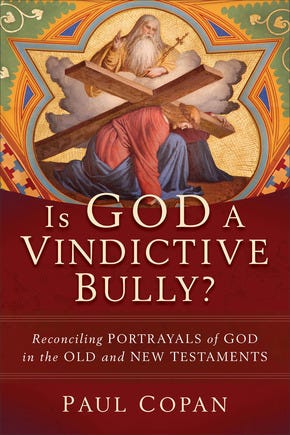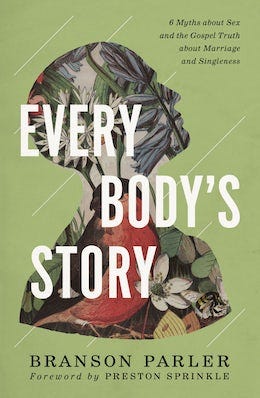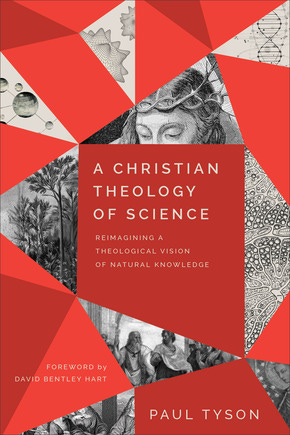Tools of the Trade, Part 3
By David Baggett and Melissa Cain Travis | Bulletin Roundtable
[See Part 1 and Part 2 of this series here and here. — Chris]
David Baggett
This month our job was to identify some online resources—besides books and journal articles—helpful for apologetics. I’m not a big podcast guy, truth be told, but I enjoy occasionally watching or listening to online debates or intelligent, irenic conversations between believers and unbelievers. Jordan Hampton, Cameron Bertuzzi, Good Reasons Apologetics, Bellator Christi, Room for Doubt, Apologetics 315, the Jude 3 Project, the Two Tasks Institute, Confident Christianity, and lots of other folks and outfits do some really good work. Joshua Rasmussen, Dustin Crummett, Tyler McNabb, Ryan Mullins, and several others come to mind as excellent to listen to and learn from. The problem with naming names is that I leave too many out, so please don’t take this sampling as if it’s exhaustive.
For some years now my team at Moral Apologetics have run MoralApologetics.com. I recently rewrote our ministry focus: “The Center for the Foundations of Ethics at Houston Christian University and Moral Apologetics Press are devoted to exploring the evidential significance of a range of moral realities—from the sacredness of life to the value and uniqueness of people, from the dignity of persons to their essential equality, from inviolable human rights to ubiquitous signals of transcendence, from authoritative moral obligations to the possibility of moral knowledge, from the need for moral forgiveness and transformation to the rational stability of the ethical enterprise.” But since that seems like shameless self-promotion, I won’t mention it. : )
Online resources also can feed our souls in various ways; allow me to mention just one example. This summer was hard for me, and for many. My dear friend Mark Foreman died, who was more brother than mere friend. He sang at my mom’s funeral and my own wedding. Together Mark and I saw John McEnroe play tennis in person; we attended Phantom of the Opera in London; we toured Oxford University; we saw Shakespeare plays together in Staunton; we walked the streets of Washington, D.C., while he regaled me with tales of Watergate. He, his family, and I shared Thanksgiving and Christmas meals more times than I remember. And for nearly fifteen years, at least once a week, we watched the most action-packed films on offer after dining and conversing at length over Italian food. If eating together is sacramental, our friendship was quite the liturgical smorgasbord.
We shared so many meals and conversations through the years that in retrospect they easily blend, but their cumulative effect was considerable. We had occasion to discuss just about anything and everything under the sun—including sex, politics, and religion. Those were probably our favorite, in fact. As time went on, there was often a meeting of the minds; it’s not that we always agreed, but we certainly did much of the time. And even when our perspectives diverged, the result was a fuller picture that proved mutually enriching. In a sense our weekly pilgrimage constituted our shared ritual, something we came to rely on and that invariably shaped us. It really was a liturgy of sorts. Christians have always taught that there is something deeply sacramental in a shared meal, a vivid example of how we can catch a glimpse of the eternal in the everyday, the transcendent in the immanent, something sacred in the quotidian.
I’m still gutted by his loss, but the internet still lets me see him and hear that remarkable voice of his. So I dedicate this post to my dear friend, Mark—and his wife, three daughters, and his grandchildren—and offer for your listening pleasure this video of Mark singing a beautiful song way back in 1989. The production value isn’t great, but it’s priceless. And now that he’s gone, at least for now, the words are all the more poignant:
Because we serve a God of resurrection, whose promises are true, we have a hope that won’t disappoint. Even when our eyes are filled with tears, we don’t mourn as those without hope. We’ll see Mark again, not just in a video, but face-to-face. I look forward to that day. And because we have such hope, let’s be prepared to give a reason for the hope we have within us.
— David Baggett is Professor of Philosophy and Director of the Center for the Foundations of Ethics at Houston Christian University. He is the author or editor of about fifteen books, most recently Telling Tales: Intimations of the Sacred in Popular Culture written with Marybeth Baggett.
Melissa Cain Travis
These days, we have at our disposal an enormous treasure trove of books, websites, videos, podcasts, and other media that benefit the work of apologetics. For many people, it can be overwhelming trying to navigate through everything out there in search of factually accurate, logically coherent, up-to-date, and charitable resources. For this reason, I’m glad that my colleagues and I have been asked to share some recommendations for exceptional resources! Here are several (arranged in no particular order) that you may not have encountered before. As you might expect, most of them relate to my areas of academic interest, but there are a few that are broader in scope. Enjoy!
1. Oxford University’s Ian Ramsey Centre for Science and Religion
The IRC website offers an archive of scholarly lecture videos related to science and religion. I appreciate the wide variety of topics and the diversity of perspectives that are included. There’s a significant amount of apologetics-related material from Alister McGrath, who recently retired from his position as chair of the Centre. If you happen to live in England, you may also appreciate news about in-person IRC events.
2. The Great Books Podcast
The Great Books are those enduring works that have significantly shaped Western intellectual history. National Review produces an outstanding podcast with episodes on individual selections from the canon (canon being somewhat loosely defined). Although the audience is probably largely made up of students and educators concerned with the Great Books, the podcast offers valuable theological and philosophical insights that are useful for literary and cultural apologetics.
3. Christian Apologetics 2nd Edition by Douglas Groothuis
Just released earlier this year, the second edition of Groothuis’ apologetics textbook is one of my favorite teaching tools. It’s quite comprehensive in scope, well organized, and written to be both engaging and highly accessible.
4. Reasonable Faith Animated Videos
Over the past few years, Dr. William Lane Craig’s ministry, Reasonable Faith, has produced extremely high quality and engaging animated videos on various apologetics arguments. I frequently share them with people who need easier-to-grasp explanations with visuals. My personal favorite is “God and Mathematics,” only because that’s a topic I write and speak on often.
5. Touchstone : A Journal of Mere Christianity
Touchstone is a brilliant magazine offering a wide variety of articles within the framework of a Christian worldview. I strongly recommend getting a subscription, but the website features some free content, including articles and video lectures from past annual conferences.
6. Salvo Magazine
Salvo is a magazine devoted to a Christian perspective on science, sex, and society. It is produced by The Fellowship of St. James, which also publishes Touchstone. Salvo’s articles are bold in their truth-telling and highly relevant to this cultural moment. The graphic design is especially well done, too!
7. Secrets of the Cell with Michael Behe Video Series
Dr. Michael Behe, one of the founders of the contemporary intelligent design movement, is featured in this entertaining video series that explains the design inferences that can be drawn from biochemistry. Behe is articulate and winsome, and the material he covers is suitable for high school students and adults.
8. Mind Matters
Mind Matters is the media platform of the Walter Bradley Center for Natural & Artificial Intelligence. It offers a top-notch podcast, videos, and articles related to A.I., philosophy of mind, human personhood, intelligent design, and cutting-edge technologies that—for better or worse—are shaping human society.
—Melissa Cain Travis, PhD, is a Distinguished Fellow of Great Books and Philosophy at Southeastern University and an Affiliate Faculty at Colorado Christian University. She is the author of Science and the Mind of the Maker: What the Conversation Between Faith and Science Reveals About God (Harvest House, 2018) and Thinking God's Thoughts: Johannes Kepler and the Miracle of Cosmic Comprehensibility (forthcoming, Roman Roads Press, 2022).
*Sponsored posts
Is God a Vindictive Bully?
Reconciling Portrayals of God in the Old and New Testaments
Critics outside the church often accuse the Old Testament God of genocide, racism, ethnic cleansing, and violence. But a rising tide of critics within the church claim that Moses and other “primitive,” violence-prone prophets were mistaken about God's commands and character. Both sets of critics dismiss this allegedly harsh, flawed, “textual” Old Testament God in favor of the kind, compassionate, “actual” God revealed by Jesus. Are they right to do so?
Following his popular book Is God a Moral Monster?, noted apologist Paul Copan confronts false, imbalanced teaching that is confusing and misleading many Christians. Copan takes on some of the most difficult Old Testament challenges and places them in their larger historical and theological contexts. He explores the kindness, patience, and compassion of God in the Old Testament and shows how Jesus in the New Testament reveals not only divine kindness but also divine severity. The book includes a detailed Scripture index of difficult and controversial passages and is helpful for anyone interested in understanding the flaws in these emerging claims that are creating a destructive gap between the Testaments.
“Do you have a problem with something, or a lot of things, in the Old Testament? Paul Copan has provided a virtual encyclopedia of helpful answers to frequently asked questions that trouble many readers. He tackles a whole range of objections that arise both from those who claim broad Christian allegiance to the Bible as a whole and from those who make no such claim whatsoever and use the Old Testament as a major reason for their hostility. This is a thoroughly detailed reference work that those of us who teach or preach the Old Testament will turn to frequently, or point others to, when such questions are aired. An excellent resource indeed!”
— Christopher J. H. Wright, global ambassador and ministry director, Langham Partnership; author of Old Testament Ethics for the People of God
See our Worldview Bulletin excerpt from Is God a Vindictive Bully? here.
Find Is God a Vindictive Bully? at Amazon, Baker Publishing Group, and other major booksellers.
Every Body's Story
6 Myths About Sex and the Gospel Truth About Marriage and Singleness
In Every Body's Story, Branson Parler focuses on three predominant myths of sexuality in our secular age—individualism, romance, and materialism—and three dominant myths in Christian circles—anti-body theology, legalism, and the sexual prosperity gospel—exploring how those stories shape our practice. Our views of sexuality and our practices around sex are never just about sex. How we use and view our bodies reveals who/what we think God is (or is not) and who we are.
If we truly understand the biblical logic of marriage, sexuality, and singleness—that they are meant to embody the gospel—then we will better understand why this witness is so vital. As God's self-giving faithfulness is put on display by both married and single Christians, those formed by our secular age will have to ask: What if it's true? What if there's more? What if God really does love us that much? Rather than viewing our sexuality as an isolated matter of ethics, we can see how the gospel places our sexuality in the context of God's rescue mission of the world.
“It is hard to imagine a more timely and articulate theology of bodies, sex, and marriage. Branson Parler has masterfully diagnosed what ails both our culture and our churches' sexual thinking and practice. Every Body's Story is biblically adept, historically aware, culturally astute, and philosophically sophisticated. At the same time, it is imminently practical and hauntingly convicting. I truly wish someone would have given me this book decades ago!”
— John Nugent, professor of Bible and theology, Great Lakes Christian College
See our Worldview Bulletin excerpt from Every Body’s Story here.
Find Every Body’s Story at Amazon, Zondervan, and other major booksellers.
A Christian Theology of Science
Reimagining a Theological Vision of Natural Knowledge
This book reframes the discussion between Christian theology and contemporary science, arguing that it is good both for religion and for science when Christians treat theology as their first truth discourse.
Paul Tyson argues that creedal Christianity has much to contribute to the ongoing conversation. He explains that the three usual approaches to science and religion—opposition, demarcation, and synthesis—assume that fixed and essential definitions of science and religion are possible. However, both science and religion as we actually practice them are historically situated ways of engaging with the natural world and transcendence that are in a continuous process of development and decay. We have come to separate natural knowledge (science) from faith and moral beliefs (religion), leading to serious difficulties in integrating knowledge and meaning, facts and values, and immanence and transcendence.
At the root of these dissonances is the difficult relationship between a naturalistic philosophy that purports to be a scientific realism and the things that make us human: transcendence, faith, meaning, and purpose. This is the result of science displacing Christian theology as Western modernity's first truth discourse. However, Christian theology contains deep resources in its approach to knowledge and reality that have not been brought to the science and religion conversation since the late nineteenth century.
This book contains an intellectual history of theology's engagement with science during the modern period, critiques current approaches, and makes a constructive proposal for how a Christian theological vision of natural knowledge can be better pursued.
“This is a bold book, destined to become a classic. Cutting through the clutter of worn-out science-and-religion debates, Paul Tyson reclaims theology as the first truth discourse that tells us what science is and how it should function. Rather than look through the lens of science to theology, A Christian Theology of Science turns the telescope around and asks us to consider the scientific implications of creedal Christianity. Tyson's book is both erudite and lucid. Rarely have the foundations of modern science been subjected to a more penetrating critique.”
— Hans Boersma, Saint Benedict Servants of Christ Chair in Ascetical Theology, Nashotah House Theological Seminary
See our Worldview Bulletin excerpt from A Christian Theology of Science here.
Find A Christian Theology of Science at Amazon, Baker Academic, and other major booksellers.
Truth Changes Everything
How People of Faith Can Transform the World In Times of Crisis
By Jeff Myers, Ph.D., President of Summit Ministries
As a university student, I was taught that the world was stuck in the Dark Ages until the Enlightenment, when reason replaced revelation. Smart people quit believing in a personal God. The rejection of God, I was told, paved the way to a new era in science, technology, the modern managed economy, and personal—especially sexual—freedom. This “just so” story is false.
In my book Truth Changes Everything, I share stories of theologians, educators, scientists, architects, political theorists, and artists whose full embrace of Truth as revealed in Jesus set the world on a self-correcting course of flourishing.
The battle over truth has reached a fever pitch in our own day. Against the trend of “speaking your truth,” it is up to believers to “seek the truth” and to remind the world that Truth isn’t just a set of logical propositions; it is a person. It is Jesus. And that truth changes everything.
“This book is perfectly titled because truth does change everything. It changes whether we live in hope, love, and faith or fear and despair. Dr. Myers lays out what is at stake in the battle for Truth and offers a road map for how Truth can be known and experienced. This is a timely, insightful, and story-filled book.”
— Sean McDowell, Ph.D., author of Chasing Love and A Rebel's Manifesto
Get the first chapter online for free at TruthChangesEverything.com. Buy Truth Changes Everything at Amazon, Baker Publishing, and other major booksellers.
Advertise in The Worldview Bulletin
Do you have a book, course, conference, or product you’d like to promote to 5,160 Worldview Bulletin readers? Click here to learn how. We’re currently booking for November and December.
Subscribe to or Support The Worldview Bulletin
Your support makes The Worldview Bulletin possible! We couldn’t do this without the support of you, our readers. We would be grateful for your help in any of the following ways:
Subscribe to our monthly newsletter and receive exclusive content from our team of world-class scholars and access to our full archive of scores of articles that provide a master class in Christian apologetics. You can also give a gift subscription to a family member or friend who would benefit, or subscribe a group of three or more and save 20%.
Make a one-time or recurring donation.
Become a Patron and receive signed books from our team members.
“The Worldview Bulletin shines a brilliant light of truth in a darkening world. These authors, who are experts in their field, consistently provide logical, rational, moral and most importantly biblical answers, in response to the deceitful narratives we are bombarded with daily. I have found it a great source of enlightenment, comfort, and inspiration.”
— B. Shadbolt, Subscriber, New South Wales, Australia
“I find The Worldview Bulletin very stimulating and would encourage all thinking Christians to read it.”
— John Lennox, emeritus professor of mathematics, University of Oxford, emeritus fellow in mathematics and philosophy of science, Green Templeton College, author of Cosmic Chemistry: Do God and Science Mix? (Lion)






